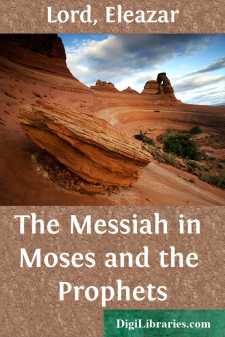Categories
- Antiques & Collectibles 13
- Architecture 36
- Art 48
- Bibles 22
- Biography & Autobiography 816
- Body, Mind & Spirit 145
- Business & Economics 28
- Children's Books 17
- Children's Fiction 14
- Computers 4
- Cooking 94
- Crafts & Hobbies 4
- Drama 346
- Education 58
- Family & Relationships 59
- Fiction 11834
- Foreign Language Study 3
- Games 19
- Gardening 17
- Health & Fitness 34
- History 1378
- House & Home 1
- Humor 147
- Juvenile Fiction 1873
- Juvenile Nonfiction 202
- Language Arts & Disciplines 89
- Law 16
- Literary Collections 686
- Literary Criticism 179
- Mathematics 13
- Medical 41
- Music 40
- Nature 179
- Non-Classifiable 1768
- Performing Arts 7
- Periodicals 1453
- Philosophy 66
- Photography 2
- Poetry 897
- Political Science 203
- Psychology 45
- Reference 154
- Religion 516
- Science 126
- Self-Help 85
- Social Science 82
- Sports & Recreation 34
- Study Aids 3
- Technology & Engineering 59
- Transportation 23
- Travel 463
- True Crime 29
Our website is made possible by displaying online advertisements to our visitors.
Please consider supporting us by disabling your ad blocker.
The Messiah in Moses and the Prophets
by: Eleazar Lord
Description:
Excerpt
CHAPTER I.
Reasons for examining the Hebrew Records of the Messiah.
It is said of the Messiah, in a discourse with two of his disciples, that âBeginning at Moses, and all the prophets, he expounded unto them in all the Scriptures, the things concerning himself.â And subsequently: âThese are the words which I spake unto you while I was yet with you, that all things must be fulfilled which were written in the law of Moses, and in the prophets, and in the Psalms, concerning me. Then opened he their understandings, that they might understand the Scriptures.â On another occasion he said: âSearch the Scriptures; for in them ye think ye have eternal life: and they are they which testify of me.â And again: âHad ye believed Moses, ye would have believed me; for he wrote of me. But if ye believe not his writings, how shall ye believe my words?â
At his advent he was, pursuant to a prediction of Isaiah, called Immanu-El, God with us. In conformity with another prediction, it was the office of his fore-runner to prepare the way of Jehovahâthe Lord. And an angel announced to the shepherds: âUnto you is born a Saviour, which is Christ the Lord,â (Jehovah.) âPhilip saith to Nathaniel, We have found him of whom Moses in the law, and the prophets, did write, Jesus of Nazareth.â
We should naturally infer from these passages that the delegated official Person, Jesus, the Christ, was the theme of the Old Testament Scriptures; that his official agency and relations were there continuously and amply treated of; that his complex character, his divine prerogatives, his prophetical, sacerdotal and regal offices, his works as Creator, Lawgiver, and Ruler, and his relations as Covenanter and Redeemer, were there conspicuously set forth, and were the recognized and acknowledged objects of the faith and trust of patriarchs, prophets, and all true worshippers.
And such undoubtedly was the case. He was the Jehovah of the Old Testament; the Elohe of the patriarchs and of Israel; the Angel or Messenger Jehovah, the Jehovah Zebaoth, the Adonai, the Messiah of the ancient dispensations. Under these and other designations Moses, the psalmists, and the prophets wrote of him; saw, acknowledged, and believed in him; worshipped and praised him in the tabernacle and temple; recognized and obeyed him as their Lawgiver, and trusted in him as their Saviour.
Their faith rested on him as the present object of their homage and trust, asserting his prerogatives, dispensing his benefits, and in all his relations exerting his official agency. They regarded him not merely as he was typified, but as he then manifested himself and executed his offices. In some respects his future manifestations, and especially his sufferings and death for the expiation of sin, were vividly prefigured by typical rites, and were objects of their faith; but in other respects, as their Mediator, Prophet, Lawgiver, Priest, and King, he was the present object of their homage, faith, love, and obedience. The faith of Abel, Enoch, Noah, Abraham, and their successors, embraced his person and his official prerogatives and works, and was therefore effectual unto justification, precisely as that of believers under the present dispensation, who are therefore described as walking in the steps of that faith of Abraham which was counted for righteousness. The faith which was instrumental in his justification was the exemplar alike of that of all believers under the ancient, and of those under the present dispensation. To him the patriarchs erected altars and offered sacrifices and prayers, and from him received gifts and promises. To him the ministerial offices and typical services of the Levitical priesthood had immediate reference. In the tabernacle and temple, as Prophet, Priest, and King, he instructed them, prescribed their worship and obedience; and as their present Lawgiver and Ruler, exercised over them his providential and moral government.
All this is implied, indeed, in the facts that the Church of that and the present day is the same; that the method of salvation through faith in him was the same then as now; and that he was the Saviour and Mediator alike them and at present: and otherwise it is not perceived how an intelligible or satisfactory answer can be given to the questions, How did he exercise the office of Mediator under the ancient economy?...


